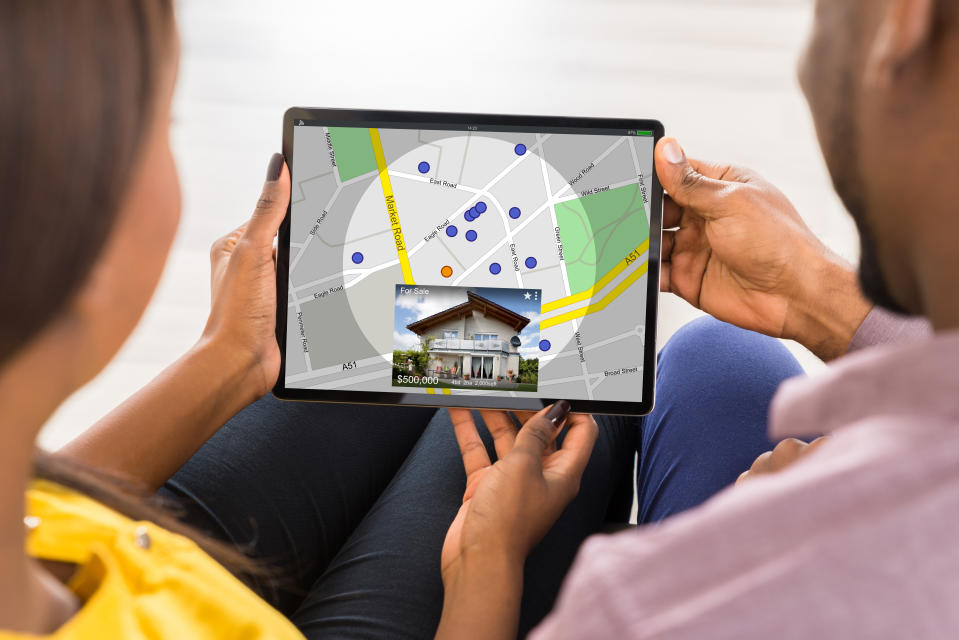Closing on a home purchase virtually is more common amid the coronavirus outbreak
The ability to close on the purchase of a home online has been available, at least in part, for over a decade. But the novel coronavirus pandemic is making the digital option more popular.
As COVID-19 forces Americans indoors, most homebuyers who started the purchase prior to the outbreak are now completing the purchase online. And as a result, some brokerage firms and digital mortgage companies are seeing explosive growth.
Seattle-based brokerage Redfin has seen an 18-fold increase in e-closings in March compared to February. San Francisco-based Snapdocs, a digital closing platform that does about 120,000 mortgage closings a month, saw so much demand in March that the company doubled their projected growth for the first quarter from January to March. And New York-based digital mortgage lender Better.com had 200% application growth in March from last month.
“Now, everyone who is eligible [those whose states, counties, and mortgage providers allow it] is using it. Everything is remote if it can be,” said Hilla Sferruzza, CFO of Meritage Homes, an Arizona-based development company that sells homes direct to consumers.
Meritage Homes will complete its first completely no-human contact closing later this week in Houston. Until now, 75%-80% of eligible customers have used partially online digital closing services, but Meritage expects the pandemic to boost usage up to 90% in areas where it is available, said Brian Hall, president of financial services.

One of the reason for growth is newfound government cooperation. Closing on a house purchase involves notarization, ID verification and signatures on the deed, mortgage, promissory notes, procedural documents and disclosures.
Many states and counties in the U.S. don’t allow or only partially allow digital closings. Notarization often must occur in person, but most places allow electronic signatures. As governments weigh between maintaining the health and safety of citizens with keeping the economy running, they are now doing everything they can to let home buyers finish the process digitally.
Some 17 states have issued emergency orders to allow remote notarization, in addition to the 25 states that already allow remote notarization, according to the American Land Title Association. New York’s Governor Andrew Cuomo signed an executive order allowing remote notarization on March 20.
“Before this Executive Order [in New York], notaries had to sign in person, which was nearly impossible due to the crisis. This arrested many business transactions across the state. Today’s announcement is huge news and will aid in keeping transactions moving forward,” said Jason Haber, associate broker at Warburg Realty, based in New York City.
Currently only eight states, including California and Maine, do not permit remote notarization. In these locations, home purchases still have to take place in-person.
But it is not only local governments that have held digital closings back. Lenders, investors, banks, and mortgage companies all have their own compliance offices and often object to digital signatures.
“If it were up to the consumer, half or more would want digital closing. But the lender is historically very risk averse because they [digital documents] haven’t been tried in court,” said Aaron King, CEO of Snapdocs. “So the strategy is do what you can. Some places are completely digital, but where someone won’t accept digital, we do a hybrid closing and digitize what we can.”
Where digital signatures and remote notarization is not allowed, either by the local government or by parties in the transaction, real estate companies are getting creative.
One Minnesota-based title insurance and real estate closing company, Legacy Title, offers drive-thru title closings at its 12 locations, as of March 23, according to a press release. Others are doing the same, wearing latex gloves to get signatures needed to complete the transaction, according to Patrick Boyaggi, CEO of Own Up, a mortgage technology company.
Sometimes “agents have to meet in Walmart parking lots to exchange documents through cracked-open car windows,” said Redfin CEO Glenn Kelman.
Change is necessary
While some homebuyers may put off sales until the coronavirus pandemic subsides, others who obtained low mortgage rates at the beginning of March, have a limited time frame to close on their purchase.
Plus, home sales represent a large sector of the economy, supporting jobs in more than 12 sectors, from mortgage companies to investors. So keeping the sector moving is vital to supporting those employees’ livelihoods, said experts.
“I think it has a big economical impact. Shutting down home sales would impact contractors, realtors, mortgage loan operators, underwriters — it has elements of the domino effect if homes don’t get sold, right?” said John Moffatt, director of mortgage operations at Better.com.
Some mortgage lenders say that this switch to digital will be a permanent change, even when the pandemic passes. The crisis has nudged them into more efficient methods, said industry experts.
“Sometimes, change doesn’t happen unless it is absolutely necessary. This is going to be the big push into digital mortgage closings,” said Moffatt. “Real estate companies and brokerages are forced to adapt to a digital environment right now and quickly implement it, or else their business could be in jeopardy. After they have made all that effort, are you gonna go back to your analogue methods? I don’t think that would make sense.”
More from Sarah:
Airbnb hosts turn to longer term rental income during coronavirus outbreak
Landlords offer retailers some relief amid the coronavirus outbreak
Coronavirus forces Zillow Offers, Redfin and other major brokerages to cancel open houses

 Yahoo Finance
Yahoo Finance 
